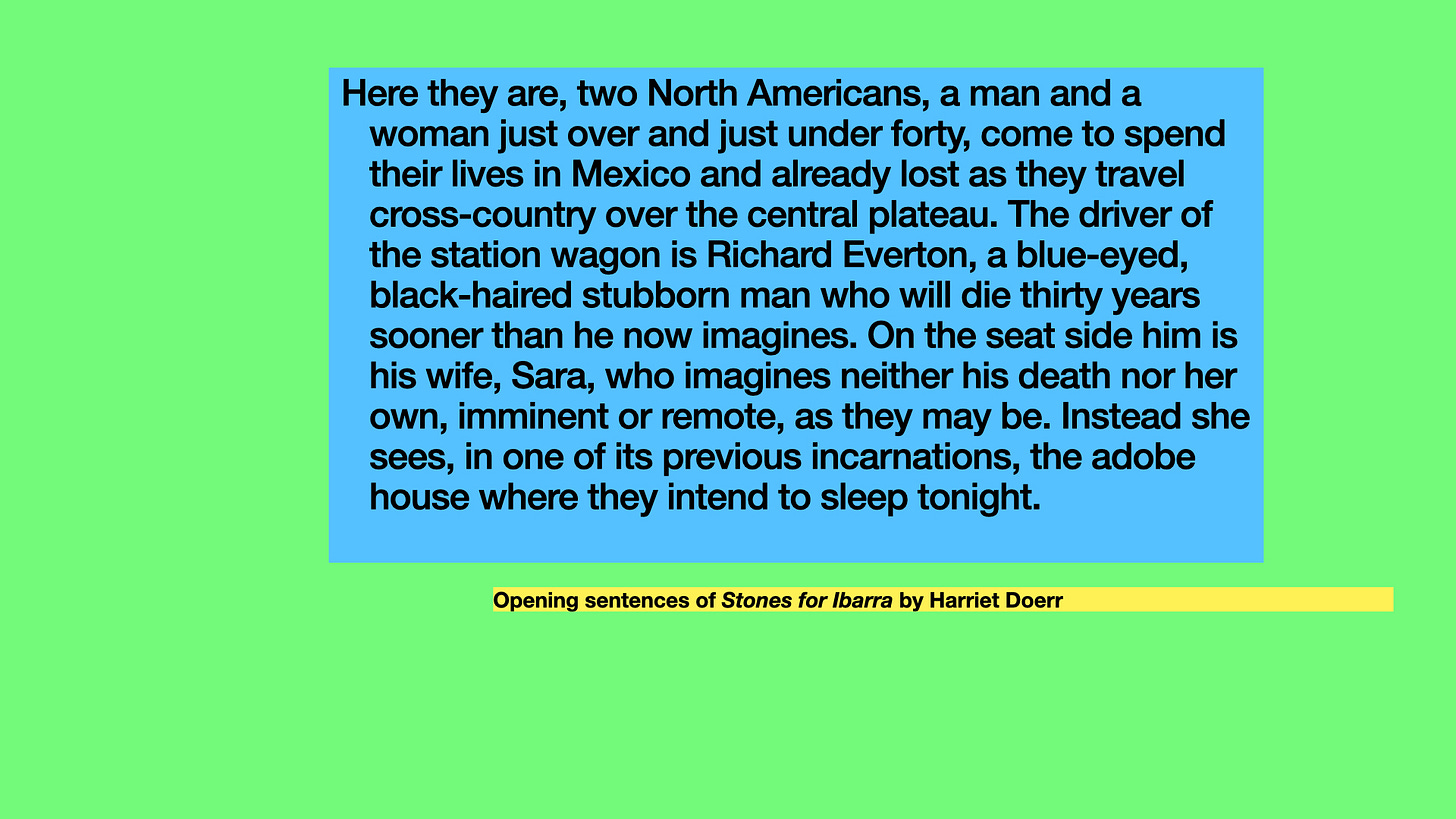Stones for Ibarra by Harriet Doerr: Lesson 16 Part two
Setting and how to use it
Setting: Let’s talk about Stones for Ibarra and so we see how setting operates in story. Like point of view, through whose eyes we see the story, setting is mightily more complicated in fiction than where the story takes place.
To place us again for part two of this lesson1 a quote from the novel follows:
Table of Contents for all 19 lessons
Keep reading with a 7-day free trial
Subscribe to Mary Tabor "Only connect ..." to keep reading this post and get 7 days of free access to the full post archives.






